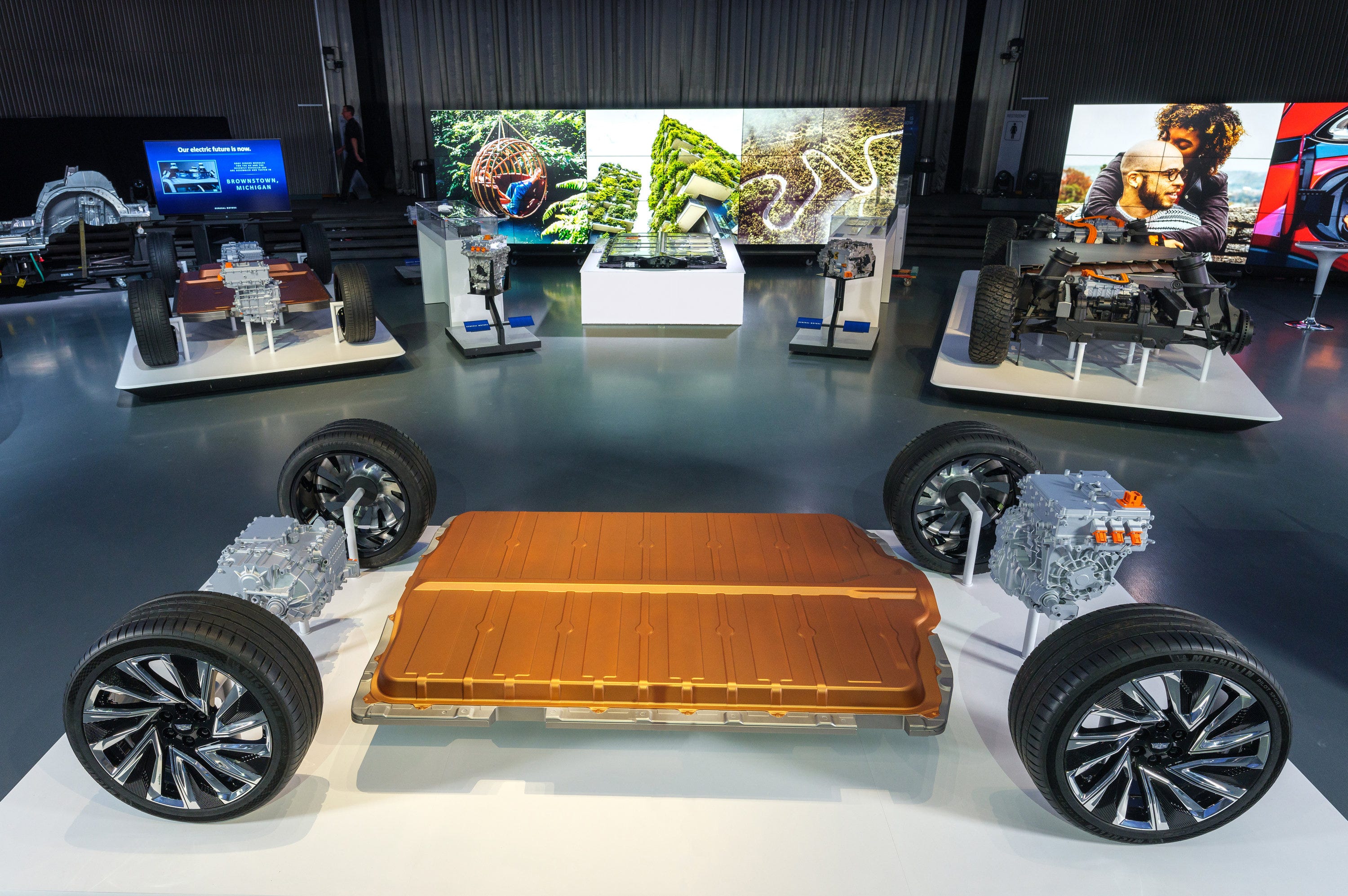GM Has Upped Its Bet That Americans Will Go Electric
But Ford is going the other way, gambling that EV demand will come late
1 day ago·3 min read
|

Asthe auto industry undergoes a technological revolution, we have watched two distinct strategies unfold in the United States. GM has positioned itself with the most aggressive developers of electric vehicles (EVs) on the planet. But, with combustion still dominating the road by far, Ford seems to have decided that, if Americans do go electric, it will be gradual and take place over decades.
Both approaches are huge risks. If GM is wrong and Americans cling to gasoline-propelled vehicles, it will have seriously wrong-footed itself and squandered at least $27 billion — a full half of its five-year capital budget through 2025, not to mention planned spending after that. If Ford has miscalculated and motorists rush to EVs, it will have left itself far behind and perhaps technologically crippled.
So far, the market seems to be favoring both approaches. Shares of both companies are up a whopping 26% this month, though GM's were up 3.4% on yesterday's news of an aggressive new push into EVs. GM said that, starting in 2035, it will no longer make combustion-propelled consumer vehicles, but only EVs. Among the major carmakers, only Volvo has gone this far; the Sweden-based carmaker is going all-EV in 2030.
There is room for skepticism toward the GM announcement. It notably does not commit the company to the elimination of combustion, but calls it an "aspiration." In a report Thursday, the New York Times noted that, just four years ago, GM CEO Mary Barra made a point of asking then-President Donald Trump to roll back requirements for auto fleets to average 54.5 mpg by 2025. She was aligning with Trump's own sentiments —he pushed them back to 40 mpg. Today, the White House fashion is EVs.
I asked GM about the wiggle room in its sort-of pledge. A spokeswoman said the aims were serious and "we believe we can get there." In a note to clients, Wedbush analyst Dan Ives also suggested that the announcement should be taken at face value. "In our opinion, this is a very bullish signal for the EV sector domestically and we believe is a shot across the bow at Tesla and other EV players that GM will be aggressively going after EVs and is not just talking the talk with this latest news," Ives said.
A sign of GM's seriousness is its battery, made in a partnership with LG, the South Korean company. GM has said that it is running an internal competition between two teams working on frontier breakthroughs in silicon and metallic lithium anodes. The winning anode will be deployed in vehicles by the middle of the decade and allow GM EVs to go 400 miles on a charge, much further than current electric vehicles, the company has said.
In 2025, GM plans to be selling 30 EV models, which by then would make up 40% of its lineup, the Financial Times reported. This buildup begins later this year, when it introduces the $112,600 electric Hummer pickup. Next year, GM will launch the Cadillac Lyriq, which will start at about $60,000. The current closest to a mass-market vehicle is the Chevy Bolt, which starts at about $36,500 and goes about 260 miles on a charge.
The most aggressive current players in the global EV race are GM, VW, and — among the pure EV companies — Tesla and China's NIO. Ives said the momentum favors Tesla but that GM's move may get other players nervous. "We believe other automakers could follow GM's lead domestically with Tesla continuing to run away with market share in this EV arms race," he said.
|




No comments:
Post a Comment